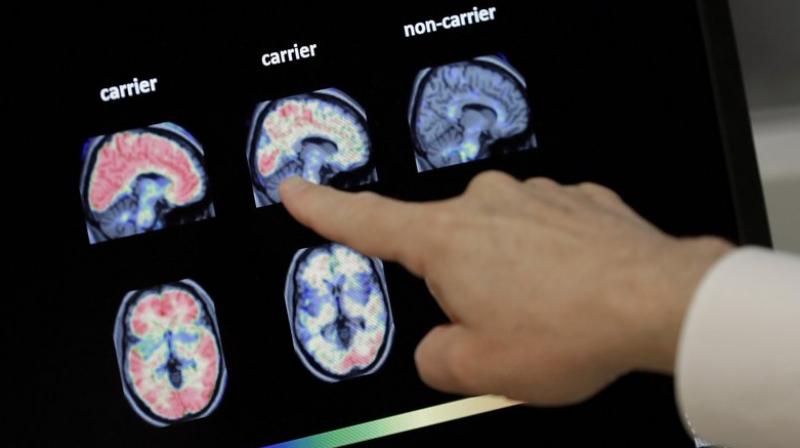Drug company to seek approval for medicine to treat Alzheimer’s

Washington: Biogen Inc. said Tuesday it will seek federal approval for a medicine to treat early Alzheimer’s disease, a landmark step toward finding a treatment that can alter the course of the most common form of dementia.
The announcement was a surprise because the drug company earlier this year stopped two studies of the drug when partial results suggested it was not likely to be successful. The company now says a new analysis of more results suggest that the drug helped reduce a decline of thinking skills at the highest dose.
The drug, called aducanumab, aims to help the body clear harmful plaques from the brain. Cambridge, Massachusetts-based Biogen is developing it with a Japanese company, Eisai Co. Ltd. More than 5 million people in the United States and millions more worldwide have Alzheimer’s. Current drugs only temporarily ease symptoms and do not slow the loss of memory and thinking skills. Dozens of efforts to develop a drug to slow or reverse the course of the disease have failed.
The two studies tested aducanumab, given as monthly infusions, in more than 3,000 patients with mild cognitive impairment or early dementia due to Alzheimer’s. The company said Tuesday that in one study, those given a high dose showed 23 per cent less decline on one measure of thinking skills and smaller declines on other measures.
However, no details were given on how much that decline meant in absolute terms. For example, the company didn’t say how much difference it made in practical matters, like whether patients were able to dress or feed themselves or live independently longer, just that these skills overall declined less for those on the high dose of the drug.
“It’s a tricky question” whether the results are truly meaningful for patients until more details are known, said Dr. Ronald Petersen, a Mayo Clinic dementia specialist who has consulted for Biogen on the studies. But filing for federal Food and Drug Administration approval “gives some hopes for patients and families that there may be disease-modifying therapies out there,” he said.
The company said more details would be given at a conference in December, including on safety. The company said the most common side effects were inflammation in the brain, most of which did not cause symptoms or lasting problems, and headaches. The brain inflammation has been seen in other studies of Alzheimer’s medicines that target the brain plaques.
“We’re really encouraged by the information that they’ve provided today,” the largest benefit so far for any experimental medicine, said Rebecca Edelmayer, a scientist at the Alzheimer’s Association, which had no role in the studies.
Biogen said it would offer aducanumab now to patients enrolled in these and earlier studies of it. Biogen shares were up more than 26 per cent to USD 281.87 Tuesday, but some on Wall Street remained skeptical. Mizuho Securities USA analyst Salim Syed said he wants to know more about the FDA’s involvement in Biogen’s decision. He also said in a research note that it’s still just a hypothesis that removing beta amyloid plaques can benefit Alzheimer’s patients. The company’s announcement “does not guarantee approval and questions remain,” he said.

